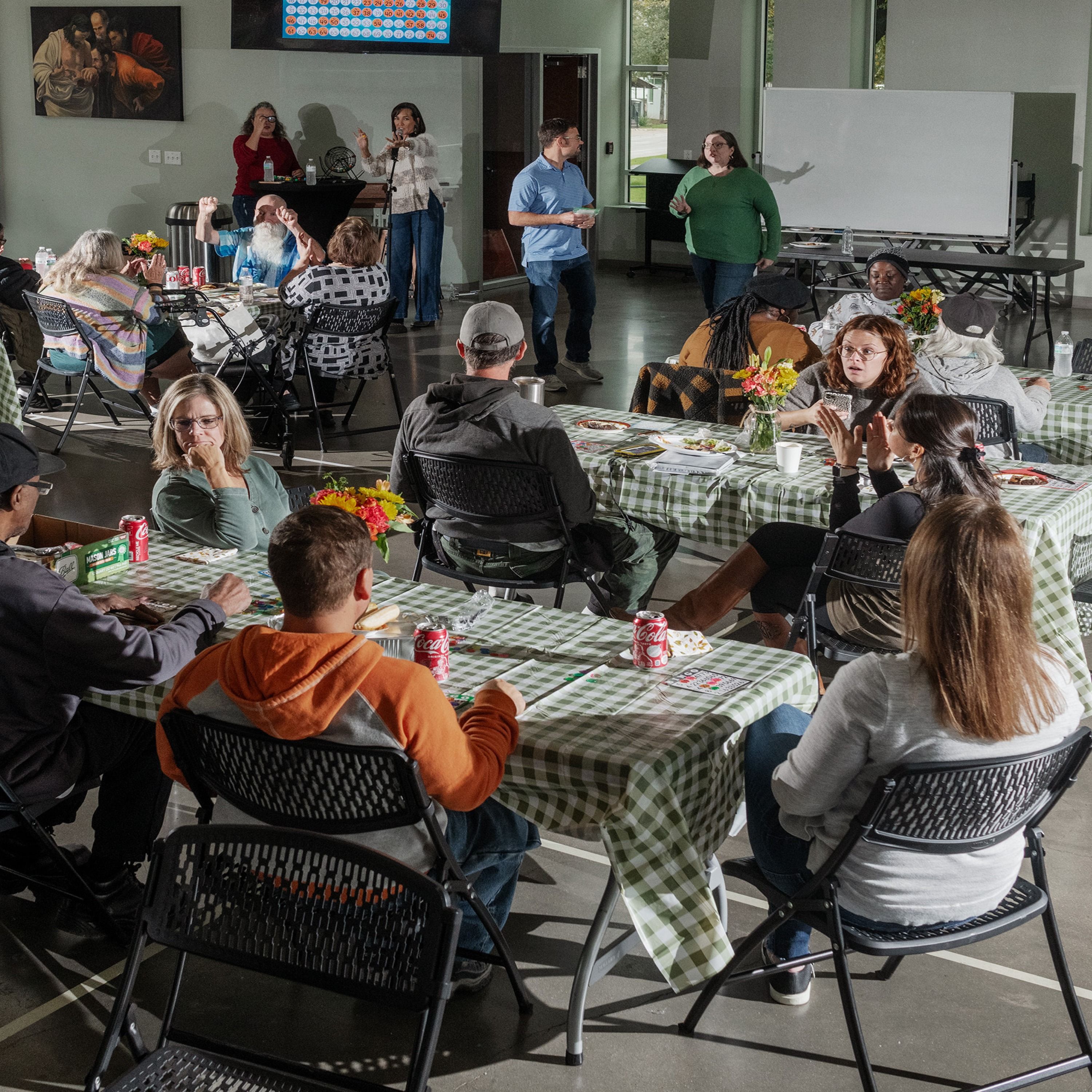Bölümler
-
The star of “The Chosen” discusses his early struggles in Hollywood, fans who conflate him with his character and how his own faith informs his work.Unlock full access to New York Times podcasts and explore everything
from politics to pop culture. Subscribe today at nytimes.com/podcasts or
on Apple Podcasts and Spotify. -
Weeks before his inauguration, President-elect Donald J. Trump is pushing the federal government toward a shutdown, corporate titans are flocking to Mar-a-Lago to gain his favor and a major media company has capitulated to Trump’s legal strategy of suing those who cross him.
The Times journalists Michael Barbaro, Maggie Haberman, Catie Edmondson and Andrew Ross Sorkin try to make sense of it all.
Guest:
Maggie Haberman, a senior political correspondent for The New York Times.Catie Edmondson, a congressional correspondent for The New York Times.Andrew Ross Sorkin, a columnist and the founder and editor-at-large of DealBook.Background reading:
The government is lurching toward a shutdown after the House tanked Trump’s spending plan.The billionaire rivals Jeff Bezos and Elon Musk are said to have dined with Trump at Mar-a-Lago.For more information on today’s episode, visit nytimes.com/thedaily. Transcripts of each episode will be made available by the next workday.
Unlock full access to New York Times podcasts and explore everything from politics to pop culture. Subscribe today at nytimes.com/podcasts or on Apple Podcasts and Spotify.
-
Eksik bölüm mü var?
-
Since Donald J. Trump won the 2024 election, cryptocurrency has surged to its highest level ever.
David Yaffe-Bellany, a technology reporter for The Times, explains how a small, renegade industry that began as a challenge to the financial system ended up on top of it.
Guest: David Yaffe-Bellany, a technology reporter for The New York Times.
Background reading:
Earlier this month, Bitcoin hit a milestone: $100,000.Eric Trump has promised the “most pro-crypto president” in history.For more information on today’s episode, visit nytimes.com/thedaily. Transcripts of each episode will be made available by the next workday.
Unlock full access to New York Times podcasts and explore everything from politics to pop culture. Subscribe today at nytimes.com/podcasts or on Apple Podcasts and Spotify.
-
Warning: This episode contains graphic descriptions of sexual violence.
After months of testimony, verdicts are expected as soon as this week in a rape trial that has both horrified and captivated the people of France.
Catherine Porter, who has covered the trial, discusses the woman at the center of the case and how, with a single decision, she has turned the power dynamics of the #MeToo era on their head.
Guest: Catherine Porter, an international correspondent for The New York Times based in Paris.
Background reading:
France’s horrifying rape trial has a feminist hero.Dominique Pelicot says he invited men to rape his wife, whom he had drugged. The French media call them “Mr. Every Man” because they come from such ordinary backgrounds.For more information on today’s episode, visit nytimes.com/thedaily. Transcripts of each episode will be made available by the next workday.
Unlock full access to New York Times podcasts and explore everything from politics to pop culture. Subscribe today at nytimes.com/podcasts or on Apple Podcasts and Spotify.
-
Warning: This episode contains descriptions of torture and death. It also contains audio of death and grief.
Under Bashar al-Assad, the Syrian government set up a vast network of prisons and torture chambers that swallowed up tens of thousands of people. For years, those perceived as enemies of the regime would disappear into the system, and their families would have no idea what happened to them.
Christina Goldbaum, who has covered the events in Syria, takes us inside one of those prisons and tells the story of one man who survived to tell the tale.
Guest: Christina Goldbaum, the Afghanistan and Pakistan bureau chief for The New York Times.
Background reading:
Families of the missing are hoping that they may be reunited with loved ones or at least learn what happened to them.Amid the celebrations after the ouster of Mr. al-Assad, Syria has also found itself in the opening chapter of a nationwide reckoning over the horrors that his government inflicted.For more information on today’s episode, visit nytimes.com/thedaily. Transcripts of each episode will be made available by the next workday.
Unlock full access to New York Times podcasts and explore everything from politics to pop culture. Subscribe today at nytimes.com/podcasts or on Apple Podcasts and Spotify.
-
Warning: this episode contains strong language.
Over the past few weeks, the resistance of a single Republican senator, Joni Ernst of Iowa, had threatened to derail Donald J. Trump’s choice of Pete Hegseth to run the Department of Defense.
Karoun Demirjian, who covers Congress for The Times, and Jonathan Swan, who covers politics, discuss how Mr. Trump and his allies ensured that Ms. Ernst’s resistance went away.
Guest:
Karoun Demirjian, who covers Congress for The New York Times, with a focus on national security.Jonathan Swan, a Times reporter covering politics and Donald J. Trump’s presidential campaign.Background reading:
Mr. Trump became convinced that letting Mr. Hegseth fail would set off a feeding frenzy among senators.Ms. Ernst, who is facing re-election in 2026, appeared less skeptical about the pick after MAGA supporters threatened her with political retribution.For more information on today’s episode, visit nytimes.com/thedaily. Transcripts of each episode will be made available by the next workday.
Unlock full access to New York Times podcasts and explore everything from politics to pop culture. Subscribe today at nytimes.com/podcasts or on Apple Podcasts and Spotify.
-
“You couldn’t have made this movie three years ago,” said Robert Zemeckis, the director of “Here.”
The film stars Tom Hanks and Robin Wright, and is based on a 2014 graphic novel that takes place in a single spot in the world over several centuries. The story mostly takes place in a suburban New Jersey living room. It skips back and forth through time, but focuses on a baby-boomer couple — played by Hanks and Wright — at various stages of their lives, from age 18 into their 80s.
Before A.I. software, Zemeckis could have had multiple actors play each character, but the audience might have gotten lost trying to keep track. Conventional makeup could have taken a decade off Hanks, who is now 68, but not half a century. The issue with C.G.I. is time and money. Persuading us that we’re watching Hanks and Wright in their 20s would have required hundreds of visual effects artists, tens of millions of dollars and months of postproduction work. A.I. software, though, changed all that accounting.
Unlock full access to New York Times podcasts and explore everything from politics to pop culture. Subscribe today at nytimes.com/podcasts or on Apple Podcasts and Spotify.
-
The guidebook writer and television personality reflects on his cancer diagnosis, social media’s corrosive effect on tourism and the transformative power of travel.Unlock full access to New York Times podcasts and explore everything
from politics to pop culture. Subscribe today at nytimes.com/podcasts or
on Apple Podcasts and Spotify. -
A new study has found that nearly three-quarters of American adults are now obese or overweight, and there’s growing concern — among politicians, scientists and consumers — about one potential culprit: ultraprocessed foods.
Guest: Alice Callahan, a nutrition and health reporter for The New York Times, discusses how these foods came to be such a big part of what we eat, and why that’s so hard to change.
Background reading:
There’s not enough evidence to recommend avoiding ultraprocessed foods, a scientific advisory committee says. Some experts disagree.Name a common condition — heart disease, Type 2 diabetes, cancer, dementia, irritable bowel syndrome — and chances are good that a diet high in ultraprocessed foods has been linked to it.For more information on today’s episode, visit nytimes.com/thedaily. Transcripts of each episode will be made available by the next workday.
Unlock full access to New York Times podcasts and explore everything from politics to pop culture. Subscribe today at nytimes.com/podcasts or on Apple Podcasts and Spotify.
-
An alarming new hack by China has penetrated the nerve center of the United States: its telephone network.
David E. Sanger, the White House and national security correspondent for The New York Times, discusses what the scope of the attack tells us about China’s growing power.
Guest: David E. Sanger, the White House and national security correspondent for The New York Times.
Background reading:
The chairman of the Senate Intelligence Committee said hackers listened to phone calls and read texts by exploiting aging equipment and seams in the networks that connect systems.Emerging details of Chinese hack have left U.S. officials increasingly concerned.For more information on today’s episode, visit nytimes.com/thedaily. Transcripts of each episode will be made available by the next workday.
Unlock full access to New York Times podcasts and explore everything from politics to pop culture. Subscribe today at nytimes.com/podcasts or on Apple Podcasts and Spotify.
-
On Sunday, after a fire that many feared would destroy it, and a swift renovation that defied all predictions, the Cathedral of Notre-Dame reopened to the public.
Michael Kimmelman, the chief architecture critic at The Times, tells the story of the miracle on the Seine.
Guest: Michael Kimmelman, the architecture critic of The New York Times and the founder and editor-at-large of Headway.
Background reading:
Critic’s Notebook: Notre-Dame’s astonishing rebirth from the ashes.The rebuilding took about 250 companies, 2,000 workers, about $900 million, a tight deadline and a lot of national pride.See photos from the reopening.For more information on today’s episode, visit nytimes.com/thedaily. Transcripts of each episode will be made available by the next workday.
Unlock full access to New York Times podcasts and explore everything from politics to pop culture. Subscribe today at nytimes.com/podcasts or on Apple Podcasts and Spotify.
-
Last week, the chief executive of UnitedHealthcare was shot and killed in Manhattan. A five-day search for the gunman ensued.
On Monday, a 26-year-old suspect, Luigi Mangione, was arrested in Pennsylvania after an employee at a McDonald’s recognized him and called the police.
Dionne Searcey, who covers wealth and corporations, and Maria Cramer, a crime reporter in New York City, break down what we know about the suspect, and what the case has revealed about many Americans’ contempt for insurance companies.
Guest:
Dionne Searcey, a reporter for The New York Times writing about how the choices made by people and corporations affect the future of our planet.Maria Cramer, a reporter for The New York Times covering the New York Police Department and crime in the city and surrounding areas.Background reading:
The suspect was an Ivy League tech graduate from a prominent Maryland family who in recent months had suffered physical and psychological pain.A visual timeline of the UnitedHealthcare C.E.O. shooting.For more information on today’s episode, visit nytimes.com/thedaily. Transcripts of each episode will be made available by the next workday.
Unlock full access to New York Times podcasts and explore everything from politics to pop culture. Subscribe today at nytimes.com/podcasts or on Apple Podcasts and Spotify.
-
Syria has been controlled by one family for more than half a century who ruled by repression, devastation and violence.
But about two weeks ago, the regime began to falter, and then over the course of one night, it collapsed.
Carlotta Gall, a senior correspondent for The New York Times, discusses the fall of Bashar al-Assad and what comes next.
Guest: Carlotta Gall, a senior correspondent for The New York Times, focusing on the human aspect of wars and civil strife.
Background reading:
Live updates: The rebels who toppled Assad face stark challenges in Syria.With Assad gone, a brutal dictatorship ends. But the new risks are huge.For more information on today’s episode, visit nytimes.com/thedaily. Transcripts of each episode will be made available by the next workday.
Unlock full access to New York Times podcasts and explore everything from politics to pop culture. Subscribe today at nytimes.com/podcasts or on Apple Podcasts and Spotify.
-
The host of the “Call Her Daddy” podcast and founder of the Unwell Network discusses her interview with Vice President Kamala Harris ahead of the 2024 election, her podcast’s journey from chatting about sex advice to delving into more serious subjects and how the Unwell Network’s fan merchandise became a eight-figure business.
“I don’t care if people consider me a journalist or a podcaster, or just a girl that talks online every week.”
This interview was with Andrew Ross Sorkin of The New York Times at the annual DealBook Summit and recorded live in front of an audience at Jazz at Lincoln Center. Read more about highlights from the day at https://www.nytimes.com/live/2024/12/04/business/dealbook-summit-news
Unlock full access to New York Times podcasts and explore everything from politics to pop culture. Subscribe today at nytimes.com/podcasts or on Apple Podcasts and Spotify.
Unlock full access to New York Times podcasts and explore everything from politics to pop culture. Subscribe today at nytimes.com/podcasts or on Apple Podcasts and Spotify.
-
The Academy Award-winning actress discusses her lifelong quest for connection, humanity’s innate goodness and the point of being alive.Unlock full access to New York Times podcasts and explore everything
from politics to pop culture. Subscribe today at nytimes.com/podcasts or
on Apple Podcasts and Spotify. -
Warning: this episode contains strong language.
In Austin, Texas, a local businessman has undertaken one of the nation’s biggest and boldest efforts to confront the crisis of chronic homelessness.
Lucy Tompkins, a national reporter for The Times, takes us inside the multimillion-dollar experiment, to understand its promise and peril.
Guest: Lucy Tompkins, who reports on national news for The New York Times.
Background reading:
Can a big village full of tiny homes ease homelessness in Austin?For more information on today’s episode, visit nytimes.com/thedaily. Transcripts of each episode will be made available by the next workday.
Unlock full access to New York Times podcasts and explore everything from politics to pop culture. Subscribe today at nytimes.com/podcasts or on Apple Podcasts and Spotify.
-
On Wednesday, the Supreme Court heard a major case on the rights of transgender children that could help uphold or dismantle dozens of laws across the country.
Adam Liptak, who covers the Supreme Court for The Times, explains how the questioning played out and how the justices are likely to rule.
Guest: Adam Liptak, who covers the Supreme Court and writes Sidebar, a column on legal developments, for The New York Times.
Background reading:
The justices heard arguments on Wednesday over whether Tennessee can ban some medical treatments for transgender youth.For families of transgender children, Tennessee’s ban forces hard choices.For more information on today’s episode, visit nytimes.com/thedaily. Transcripts of each episode will be made available by the next workday.
Unlock full access to New York Times podcasts and explore everything from politics to pop culture. Subscribe today at nytimes.com/podcasts or on Apple Podcasts and Spotify.
-
Elon Musk and Vivek Ramaswamy have called the federal bureaucracy an “existential threat to our republic.” Now, President-elect Donald J. Trump is empowering them to drastically shrink it, by whatever means necessary.
David A. Fahrenthold, an investigative reporter for The New York Times, discusses their plans — and what it would look like if they were actually carried out.
Guest: David A. Fahrenthold, an investigative reporter for The New York Times.
Background reading:
The so-called Department of Government Efficiency has advantages that past budget cutters did not, but laws and court challenges could still make change slow and difficult.For more information on today’s episode, visit nytimes.com/thedaily. Transcripts of each episode will be made available by the next workday.
Unlock full access to New York Times podcasts and explore everything from politics to pop culture. Subscribe today at nytimes.com/podcasts or on Apple Podcasts and Spotify.
-
President Biden went back on his word by pardoning his son Hunter Biden. His stated rationale for granting the pardon will inevitably muddy the political waters as President-elect Donald J. Trump prepares to take office with plans to use the Justice Department and the F.B.I. to pursue “retribution” against his political adversaries.
Peter Baker, chief White House correspondent, discusses where Mr. Biden’s decision leaves the U.S. justice system.Guest: Peter Baker, chief White House correspondent for The New York Times.
Background reading:
Mr. Biden and Mr. Trump now agree on one thing: The Biden Justice Department has been politicized.Mr. Biden is facing criticism for absolving his son after insisting he would not.For more information on today’s episode, visit nytimes.com/thedaily. Transcripts of each episode will be made available by the next workday.
Unlock full access to New York Times podcasts and explore everything from politics to pop culture. Subscribe today at nytimes.com/podcasts or on Apple Podcasts and Spotify.
-
Weeks before taking office, President-elect Donald J. Trump is doubling down on tariffs. Even if the threat to impose them proves to be just a negotiating tactic or bluster, it is also a gambit that has immediate consequences.
Ana Swanson, who covers trade for The Times, discusses whether tariffs worked in Mr. Trump’s first term and how they compare with the alternative approach used by President Biden.
Background reading:
Mr. Trump’s threat to wield tariffs is already rocking business and diplomatic relationships.The president-elect picked Jamieson Greer, a lawyer and former Trump official, to serve as top trade negotiator, a position that will be crucial to Mr. Trump’s plans of rewriting the rules of trade in America’s favor.For more information on today’s episode, visit nytimes.com/thedaily. Transcripts of each episode will be made available by the next workday.
Unlock full access to New York Times podcasts and explore everything from politics to pop culture. Subscribe today at nytimes.com/podcasts or on Apple Podcasts and Spotify.
- Daha fazla göster



















